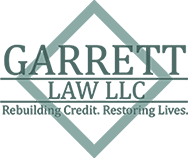About Reaffirmation Agreements
Your Chapter 7 bankruptcy discharge does not eliminate security interests in your property. Such interests can include mortgages, car notes, title loans, and personal loans secured by collateral.
A security interest allows the creditor to take back the property you purchased (or pledged as collateral) if you default on the note. You can prevent losing the secured property by signing a reaffirmation agreement.
A Reaffirmed Debt Once Again Becomes Your Personal Legal Obligation
When you sign a reaffirmation agreement, you give up the protection of the bankruptcy discharge for that debt. If you default on the loan later, state law determines what the creditor can do. Usually, this means the creditor can repossess or foreclose on the property, sell it, apply the proceeds to the debt, and sue you for any money left on the note.
Reaffirmation Agreements Are Not Automatic
Reaffirmation agreements are voluntary for you and for the creditor. In some cases, the creditor refuses to issue a reaffirmation agreement, or fails to file the agreement before the court issues your Chapter 7 discharge.
The creditor may also demand attorney fees for drafting and filing the agreement. The Court also reviews the terms of the reaffirmation and determines if entering into the reaffirmation is in your best interest. The Court is concerned that you do not take on debts you cannot handle coming out of bankruptcy.
If the Court denies the reaffirmation agreement, you are in technical default again. This is part of the trade‐off between Chapters 7 and 13. In exchange for a quick, efficient, inexpensive discharge of your debts, you give up control over the actions of creditors. A Chapter 13, while more expensive and complex, gives your attorney greater ability to control creditors.
What Happens if a Reaffirmation is Not Successful?
If the parties do not complete a reaffirmation, you are in technical default on the note ‐ whether or not your actions caused the failure of the reaffirmation. You are no longer personally liable for the debt, but the creditor now has the ability to collect the collateral without violating the automatic stay.
However, it is likely the creditor will not begin collection against you as long as you stay current on the payments. You will be able to keep the property, and not assume personal liability on the debt – you just need to stay current on the payments.
Creditors may refuse to communicate with you unless you have a reaffirmation agreement on file. This is a problem if you ever want to sell, refinance, or get clear title to the property. It also means the creditor may be unable or unwilling to offer you a forbearance or loan modification if you fall behind on payments.
Finally, the creditor may not allow you to access your account information online or over the phone.
Help Us Track the Reaffirmation
It is very important you help track the reaffirmation agreement. The process usually goes smoothly. However, your attorney is on a deadline to shepherd the agreement through the system. The agreement will be out of the lawyer’s office and out of his control for much of the reaffirmation process.
If the agreement gets stuck in a pile of papers somewhere, your lawyer may need to contact the creditor to get things moving again. If you do not receive a copy of your reaffirmation agreement within six weeks of filing, call your lawyer. This will ensure that your agreement is being actively tracked by all concerned. Remember, however, that we cannot force a creditor to reaffirm. We can only ask on your behalf.
Remember the following factors of reaffirmation:
- Reaffirming puts you personally on the hook for the debt, even after your discharge.
- The Court may not approve the reaffirmation if it is not in your best interest.
- The agreement is voluntary for you and for the creditor—the creditor may refuse to offer a reaffirmation.
- All parties need to move quickly to get an agreement reviewed, signed, and filed.
If you are interested in filing for bankruptcy in Topeka, KS, contact Garrett Law LLC today at (888) 253-4526 and let us help you overcome significant debt. More than a decade of experience helping hundreds of families throughout the heartland!

